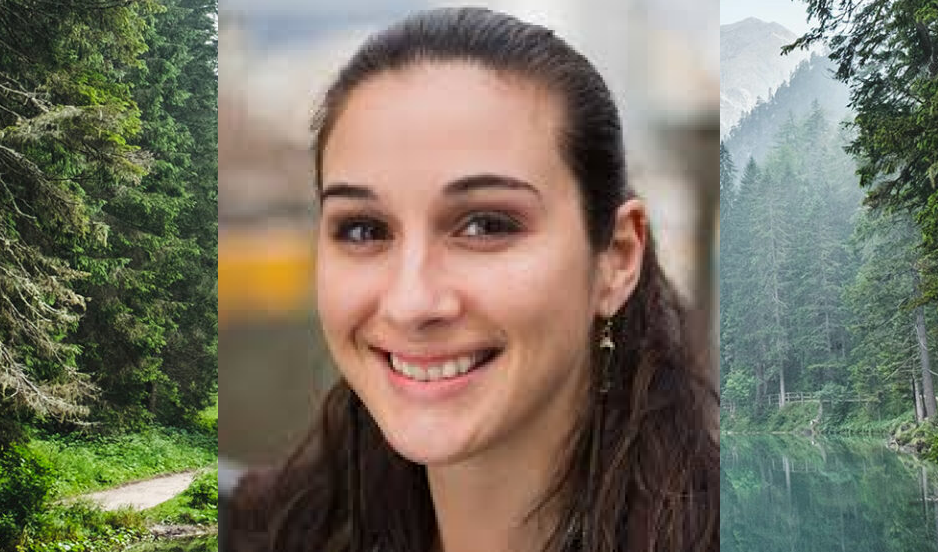Update
Jane’s Fellowship Program Where Are They Now: Rachel Wiley

In 2004, The Russell Family Foundation (TRFF) launched Jane’s Fellowship Program (JFP) to support the leadership development and capacity-building of grassroots leaders in Pierce County. The JFP Graduate Network consists of 129 fellows from 10 classes that have participated in the program, and class 11 is underway. JFP engages leaders interested in expanding their skills, broadening their networks and exchanging perspectives with other local leaders. Recently, TRFF caught up with a few JFP graduates to highlight the diverse group of leaders who have been through the program and where their journey has taken them post-fellowship.
This interview has been edited for clarity.
Meet Rachel Wiley, a Jane’s Fellowship Class 7 graduate, teacher, writer and advocate for teachers and students in Washington State. She promotes youth engagement in literary arts in addition to her work as a Washington State Teacher Leader and director of Teachers United.
What JFP class were you in?
Class 7
What city do you live in?
Graham
What community work are you invested in right now and what are its intended impacts?
For the last several years, I have focused my efforts on disrupting and dismantling oppressive systems within the secondary schools in my district. I plan, implement, and facilitate professional learning experiences for educators. These learning sessions are explicitly focused on identifying and eradicating harmful practices, policies, rules, and regulations within our district that disproportionately negatively impact students from historically marginalized communities. From data-driven discussions to heart-centered healing work, I have been able to use what I learned from my time in the Fellowship to implement change. I also use my yoga certification to teach students, teachers, and district administrators free yoga and mindfulness classes. I also offer social-emotional learning (SEL) professional development courses. I have taught about the healthy integration of SEL + equity as the foundation for transforming schools into healthy and thriving communities, using Zaretta Hammond’s book, “Culturally Responsive Teaching and the Brain,” as a guide.
Who do you get inspiration from to do the work you do?
My students: past, present and future. I was a graduate of an alternative school, a teen mom and someone who now has the honor of teaching at that same high school in the Open Doors Youth Reengagement Program. Open Doors Youth Reengagement is a system that provides education and services to older youth, ages 16-21, who have dropped out of school or are not expected to graduate from high school by age 21. Often, this means that my students are the most marginalized in our general system: students of color, multilingual learners, students who receive special education, teen parents, formerly incarcerated students, students who are in the LGBTQIA+ community, unhoused students and many students who have struggled significantly with mental, physical, or emotional health. The program where I get to teach is often a symbol of hope, a fresh start, a promise never to give up or forget about our students, whom many feel have been forgotten by the rest of the adults in our system long ago. Seeing my students continue to create the lives they want inspires me to try to improve the education system for them and those who will come after.
How has your community work evolved since you participated in the fellowship?
When I participated in the Fellowship, I was a director for the grassroots organization Teachers United, a volunteer organization based in the South Sound region that believes in equity for students, professional excellence, and educator-driven policy solutions. Unfortunately, COVID ended TU253 as we knew it, but I have used that same advocacy passion for changing policies in my district. Because of JFP, I took the role of district leader and mentor teacher, knowing that we needed to change systems and policies in our schools that continued to harm our most marginalized students. I was able to adopt more diverse novel studies for the district, create a freshman seminar course focused on social justice, and implement the Pre-AP English Language Arts for all students in 9th and 10th grades district-wide after presenting the research on the harmful and racist implications of tracking in schools. I would never have been able to do that without my time as a fellow.
What would you tell someone who is interested in applying for the Fellowship?
I would say that it was the best personal and professional development I have ever had in my life, and I would unequivocally and wholeheartedly recommend it to anyone who is a grassroots leader in Pierce County and wants to make more of an impact and connect with others who have the same desire to improve our community!
How would you describe your experience with JFP using three words?
Transformative, inspirational, and motivational
Favorite leader:
Malala Yousafzai